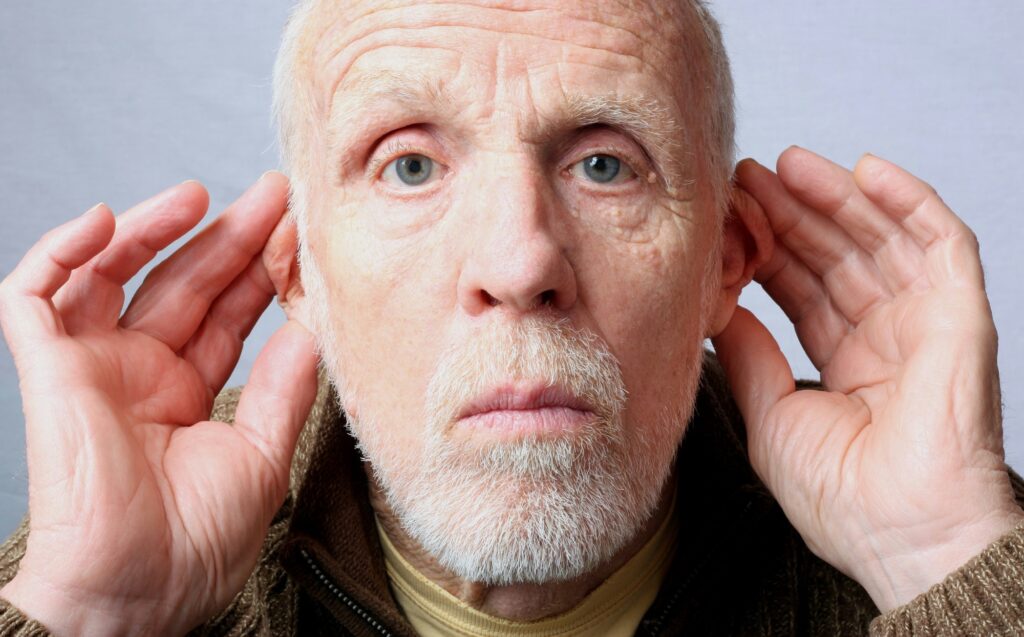By Dr ANSAR AHAMED (OTOLARYNGOLOGIST)
Introduction
Causes of Hearing Loss : Are you finding it difficult to hear conversations clearly? Do you often ask people to repeat themselves?
If so, you might be experiencing hearing loss. While most people associate hearing loss with age, there are actually several silent culprits that can lead to this condition.
In this article, we will explore the common causes of hearing loss and provide you with invaluable insights to help you safeguard your hearing.
From exposure to loud noises and genetic factors to ear infections and medication side effects, we will delve into the various factors that can impact your ability to hear and understand sounds.
By understanding the causes of hearing loss, you can take proactive steps to protect your hearing and maintain your quality of life.
Types of Hearing Loss
Hearing loss can be categorized into two main types:
- Conductive hearing loss
- Sensorineural hearing loss.
Conductive hearing loss
It occurs when there is a problem with the outer or middle ear, preventing sound vibrations from reaching the inner ear.
This type of hearing loss can be caused by factors such as
- Impacted ear wax
- Ear infections
- Anatomical abnormalities of the ear
Sensorineural hearing loss
On the other hand, sensorineural hearing loss is caused by damage to the inner ear or the auditory nerve.
This type of hearing loss is often permanent and can be caused by factors such as
- Age
- Exposure to loud noises
- Genetic factors
Noise-Induced Hearing Loss
One of the most common causes of hearing loss is exposure to loud noises.
Prolonged exposure to loud sounds, can damage the delicate hair cells in the inner ear
- Exposure to heavy machinery

- Concerts

- Firearms

These hair cells are responsible for converting sound vibrations into electrical signals that can be processed by the brain.
When these hair cells are damaged or destroyed, it can result in permanent hearing loss.
The risk of noise-induced hearing loss can be minimized by
- Wearing hearing protection
- Reducing exposure to loud noises
- Taking regular breaks in noisy environments.
Age-Related Hearing Loss

Age-related hearing loss, also known as presbycusis, is a natural part of the aging process.
As we grow older, the cells in the inner ear gradually deteriorate, leading to a gradual loss of hearing.
Age-related hearing loss usually affects both ears and can make it difficult to hear high-pitched sounds or understand speech in noisy environments.
While age-related hearing loss cannot be reversed, there are hearing aids and other assistive devices that can help improve communication and quality of life for individuals with this condition.
Genetic Factors and Hearing Loss

Some forms of hearing loss are caused by genetic factors.
Certain genetic mutations can affect the development or function of the structures in the ear, leading to hearing loss.
These genetic conditions can be present from birth or can develop later in life.
Genetic testing can help identify the specific gene mutations associated with hearing loss, allowing individuals and their healthcare providers to better understand the condition and develop appropriate treatment plans.
Medical Conditions that Can Cause Hearing Loss
In addition to noise exposure, age, and genetics, certain medical conditions can also contribute to hearing loss.
Chronic ear infections, for example, can cause damage to the structures of the ear, leading to hearing loss.
Other medical conditions such as Ménière’s disease, otosclerosis, and acoustic neuroma can also affect hearing.
It is important to seek medical attention if you experience any sudden or unexplained changes in your hearing, as early intervention can often prevent further damage and improve outcomes.
Medications and Ototoxicity

Certain medications, known as ototoxic drugs, can cause hearing loss as a side effect.
These medications include
- Some antibiotics
- Chemotherapy drugs
- Non-steroidal anti-inflammatory drugs (NSAIDs).
Ototoxicity refers to the toxic effects these drugs can have on the structures of the inner ear, leading to hearing loss or balance problems.
If you are taking any medications and notice changes in your hearing, it is important to discuss this with your healthcare provider.
They can assess whether the medication is causing the hearing loss and explore alternative treatment options if necessary.
Preventing Hearing Loss
While some causes of hearing loss are unavoidable, there are steps you can take to protect your hearing and reduce your risk.
- Avoiding exposure to loud noises
- Wearing hearing protection in noisy environments, and
- Taking breaks from loud activities can help prevent noise-induced hearing loss.
- Regular check-ups with an audiologist can help identify any changes in your hearing and allow for early intervention if necessary.
- Additionally, maintaining good ear hygiene, such as keeping your ears clean and dry, can help prevent ear infections that can lead to hearing loss.
Conclusion and Next Steps for Seeking Help

- Hearing loss can have a significant impact on an individual’s quality of life, but understanding the causes and taking preventative measures can go a long way in preserving our ability to hear.
- If you suspect you may have hearing loss, it is important to seek help from a healthcare professional or an audiologist.
- They can assess your hearing, determine the cause of your hearing loss, and recommend appropriate treatment options.
- Remember, taking action early can make a difference in managing hearing loss and improving your overall well-being.
- In conclusion, hearing loss can be caused by various factors, including exposure to loud noises, aging, genetic factors, medical conditions, and certain medications.
- By understanding the causes and taking proactive steps to protect your hearing, you can maintain your quality of life and minimize the impact of hearing loss.
Remember, your hearing is precious, so take the necessary precautions to safeguard it and seek help if you suspect any changes in your hearing abilities.
References
